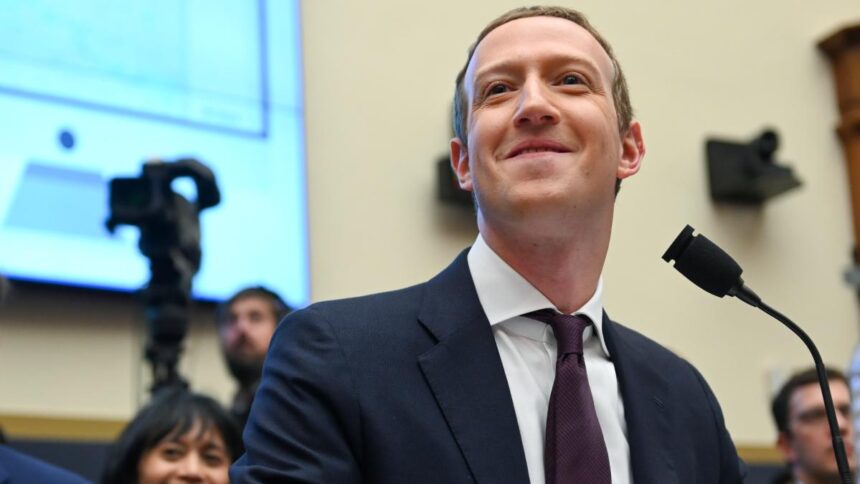In the high-stakes, caffeine-fueled world of technology and finance, “work-life balance” is often a punchline. It’s a myth whispered about in burnout recovery forums, not a core principle for building a decacorn (a company valued at over $10 billion). The prevailing narrative, especially in Silicon Valley, has always been one of relentless hustle. It’s a culture of sleeping under your desk, 100-hour workweeks, and a “move fast and break things” mentality that often breaks the people in the process.
- The Silicon Valley Epiphany: The Day Mark Zuckerberg Redefined Leadership
- The $50 Billion Disruption: What is Nubank?
- The Vélez Doctrine: The 3 Core Pillars of Smart Efficiency
- The 2025/2026 Pulse: Why This Strategy is More Urgent Than Ever
- Your Executive Playbook: Applying the Nubank Model to Your Business
- Conclusion: The Ultimate Lesson in Modern Leadership
- Sources and Further Reading
So, you might expect the founder of one of the world’s largest digital banks, a man who took on the entrenched, monopolistic banking system in Latin America and won, to be the ultimate “grind” evangelist.
You would be wrong.
David Vélez, the co-founder and CEO of Nubank, a financial technology behemoth valued at over $50 billion, operates on a different philosophy. And the seed of that philosophy came from a surprising source: his former boss, Mark Zuckerberg.
The story, as detailed in a Business Insider report, is a masterclass in modern leadership. It reveals how a single observation about corporate culture can become the cornerstone of a multi-billion-dollar enterprise. Vélez, long before he was a fintech titan, was an analyst at Meta (then Facebook). He witnessed something that shattered his preconceived notions of executive leadership.
This post explores that foundational lesson. We will dive deep into the specific, strict rules Vélez implemented at Nubank, how they’re rooted in a “smart efficiency” culture, and why these principles are more urgent than ever in today’s hybrid, AI-driven business landscape. This is not just a story about meetings; it’s a playbook for building high-performance teams, scaling a disruptive technology company, and achieving sustainable success without a human cost.
The Silicon Valley Epiphany: The Day Mark Zuckerberg Redefined Leadership
To understand the Nubank doctrine, you must first understand the moment it was conceived. David Vélez, then a younger analyst, was immersed in the hyper-competitive environment of Meta. Like many ambitious professionals, he likely held the belief that to be a leader, especially a founder-CEO, one had to be an omnipresent force. The leader was the last to leave, the first to arrive, and always, always available.
Then, Mark Zuckerberg did something that seemed, at the time, radical. He went on paternity leave.
It wasn’t just a long weekend. It was a proper, extended leave to be with his newborn. Vélez was struck by the profound implications. Here was the “emperor” of one of the most powerful and rapidly growing companies on the planet, a man whose every move was scrutinized by markets and media, and he was making the decision to unplug. He was signaling to his entire organization, and to the world, that it was not only acceptable but necessary to have a life outside of the company.
For Vélez, this was an epiphany. If the CEO, the man at the very top, could step away to focus on his family, it gave everyone else in the company explicit permission to do the same. It demonstrated that the company’s culture was built on trust and systems, not on the constant, frantic presence of its leader.
This lesson in “permission” was a stark contrast to the traditional, hierarchical business cultures Vélez had grown up around in Latin America. He realized that true leadership wasn’t about being a bottleneck of approvals; it was about building a machine that could run, and thrive, without you. He filed this lesson away, knowing that if he ever built his own company, this principle of trust and autonomy would be its bedrock.
The $50 Billion Disruption: What is Nubank?
Fast forward a few years. David Vélez, along with his co-founders, launched Nubank in 2013 with a mission that seemed impossible: to challenge the notoriously bureaucratic and fee-heavy banking oligopoly in Brazil.
Nubank is not a “tax firm” or a traditional bank. It is a financial technology (fintech) company. It exists almost entirely as an app on your phone. It began with a single product: a no-fee purple credit card that customers could manage entirely through a simple, elegant mobile application.
This was a revolution. In a market where opening a bank account required trips to a physical branch, endless paperwork, and paying exorbitant annual fees, Nubank was a breath of fresh air. It was a pure-play digital banking platform built on a modern SaaS (Software as a Service) architecture.
Today, Nubank is a financial colossus. It serves over 100 million customers across Brazil, Mexico, and Colombia. Its product suite has expanded far beyond that first credit card to include:
- Digital Savings Accounts (NuConta): A high-yield, zero-fee account.
- Consumer Credit & Loans: Accessible, transparent, and manageable personal loans.
- Business Banking: Solutions for small business owners and entrepreneurs.
- Investment Platforms (NuInvest): Giving millions their first-ever access to investment products like stocks and ETFs.
- Crypto & Insurance: Integrating modern financial products directly into their ecosystem.
Nubank’s success is a case study in digital transformation. It didn’t just digitize old banking processes; it reimagined them from the ground up, all centered on its core mission: “to fight complexity to empower people.” This relentless focus on customer experience and operational efficiency is precisely why the lessons Vélez learned at Meta were not just a “nice-to-have” but a strategic imperative. To fight complexity for its customers, Nubank first had to fight it inside its own walls.
The Vélez Doctrine: The 3 Core Pillars of Smart Efficiency
The lesson from Zuckerberg wasn’t just “take vacations.” It was about building a culture where work is focused, intentional, and effective. At Nubank, this crystallized into one of their core corporate values: “We pursue smart efficiency.”
This is not a vague platitude. It is an active, daily practice that manifests in strict, clear-headed rules for productivity. Vélez understood that the two biggest destroyers of smart efficiency in any modern company are a bad meeting culture and a chaotic approach to digital communication.
Here is the doctrine he built to protect his team’s most valuable asset: their time and focus.
Pillar 1: The War on Wasted Time (Reforming Meeting Culture)
In many corporations, the number of meetings you attend is a status symbol. It’s “performative work.” It makes you look busy, but it’s often a direct high-performance teams.
While Nubank’s official culture is rated highly (a “B+” according to employee reviews on Comparably), a common point of feedback is that even they still struggle with meetings. This is a crucial insight: the war on meetings is never truly over. It requires constant, vigilant leadership.
The Vélez-inspired rules for meetings are designed to enforce “smart efficiency” and are a model for any project management certification:
- The “No Agenda, No Meeting” Mandate: This is the golden rule. If you send a meeting invitation without a clear, concise agenda stating the purpose, the desired outcome, and the decisions to be made, it is perfectly acceptable (and encouraged) for others to decline. This one rule single-handedly eliminates 90% of useless, “status update” meetings.
- The Default is 30 Minutes (or Less): Parkinson’s Law dictates that work expands to fill the time allotted. By setting the default meeting time in the company’s business management software to 30 minutes (or even 25, to allow for breaks), you force the organizer to be concise. Hour-long meetings become the exception, not the rule, and require a strong justification.
- “Is This a Meeting, or an Email?”: This question is a cultural touchstone. It forces people to consider the medium. Is the goal to disseminate information? That is an email, a memo, or a message on a business communication platform like Slack. A meeting is only for debate, discussion, and decision-making.
- Protect Your “Maker” Schedule: Vélez’s philosophy, much like that of programmer Paul Graham, recognizes two types of schedules: the “Manager” schedule (broken into 30-60 minute blocks) and the “Maker” schedule (requiring long, 3-4 hour blocks of deep work). To build a world-class fintech platform, you need engineers, data scientists, and designers to have uninterrupted “Maker” time. The meeting rules are designed to protect this deep work at all costs.
This obsessive focus on meeting efficiency is not just about employee wellness. It’s a financial strategy. Every wasted person-hour in a meeting is a direct hit to the bottom line, a delay in shipping product, and an opening for more agile competitors. The explosive growth of the SaaS solutions market for tools like Asana, Monday.com, and Trello is a direct response to this billion-dollar problem.
Pillar 2: Mastering Asynchronous Workflow (Taming Email & Comms)
The second pillar of “smart efficiency” is taming the digital leash. If meetings are the synchronous thieves of time, then email and instant messaging are the asynchronous assassins of focus.
A culture that expects instant replies to every email or chat message is not a high-performance culture. It is a high-anxiety culture. It trains employees to be “reactive” rather than “proactive,” constantly context-switching and destroying any hope of entering a flow state.
The Vélez doctrine champions asynchronous-first communication, a cornerstone of modern remote work and hybrid work policies.
- Email is for Record, Not for Urgency: The expectation is set from the top. Email is a low-priority medium. A response is not expected within minutes, or even hours. If a matter is truly urgent (a server is down), it is handled through a designated, high-urgency channel. This frees employees from the “tyranny of the inbox” and the need to constantly check and clear messages.
- Clarity is King: Communications must be clear, concise, and actionable. Subject lines are descriptive. The first sentence of an email states the purpose. If an action is required, it is clearly labeled with a deadline. This reduces the endless, “Re: Re: Fwd:” chains that plague most organizations.
- Tools Have a Purpose: There is an understanding of what tool to use when.
- Email: For formal, external, or “for-the-record” communication.
- Chat (e.g., Slack/Teams): For quick, informal, synchronous questions or team collaboration.
- Project Management Software: For all task assignments, updates, and progress tracking.This prevents the nightmare scenario of having tasks assigned in email, project details buried in a chat, and final approvals lost in a separate document. It creates a single source of truth.
By implementing these rules, leadership gives employees the permission to disconnect. It’s the digital-age equivalent of Zuckerberg’s paternity leave. It signals that the company trusts you to manage your own focus and will not reward you for simply “being online.”
Pillar 3: Building Strong, Diverse & Autonomous Teams
This is the “why” behind the “what.” The rules for meetings and emails are not arbitrary micromanagement. They are the tactical foundation for a much larger strategic goal, another of Nubank’s core values: “We build strong and diverse teams” and “We think and act like owners.”
You cannot “act like an owner” if your entire day is dictated by someone else’s meeting schedule. You cannot build a “strong team” if every member is too burned out from context-switching to think strategically.
Vélez understood that true leadership development is about creating systems that allow for autonomy. By clearing away the “productivity theater” of meetings and emails, you create space for:
- Real Ownership: Teams can take full responsibility for their projects, from ideation to execution, without constant “check-in” meetings with management.
- Attracting Top Talent: The best engineers, data scientists, and financial services professionals don’t want to be micromanaged. They want to solve hard problems. A culture of “smart efficiency” is a massive competitive advantage in talent acquisition.
- Fostering Diversity: A culture of autonomy and asynchronous work is inherently more inclusive. It allows a working parent to structure their day around school pick-up or an employee in a different time zone to contribute effectively. It’s no surprise that, as some reports note, Nubank has a strong track record of women in leadership. As Forbes and other business publications have repeatedly shown, gender diversity in fintech is not just a social good; it is directly linked to higher profitability and innovation.
The rules are the scaffold, but the goal is to build a culture of high-trust, high-autonomy, and high-performance.
The 2025/2026 Pulse: Why This Strategy is More Urgent Than Ever
This is not a historical business-school lesson. The principles David Vélez established are at the epicenter of the most significant business trend happening right now: the future of work.
In a stunningly relevant move, Nubank’s own “Building Nubank” blog announced in late 2025 that the company is evolving its work model. After being a remote-first company, they are transitioning to a hybrid work model in 2026 and 2027, requiring employees to be in the office more frequently.
At first glance, this might seem like a reversal of the “unplugged” lesson. In reality, it is the ultimate validation of it.
A mandatory return to the office fails when a company has a broken, inefficient culture. It just moves the back-to-back, pointless Zoom meetings into back-to-back, pointless conference room meetings.
Nubank’s leadership, however, is making a strategic bet. They are betting that because they have spent a decade building a culture of “smart efficiency” and mastering asynchronous work, they can re-introduce in-person collaboration without re-introducing inefficiency.
Their stated goal for this hybrid shift is to “accelerate innovation” and “strengthen culture.” They are being intentional. In-office days will be for the things meetings should be for: collaboration, brainstorming, and high-bandwidth debate. The “deep work” and “maker” time will still be protected by the very rules Vélez has championed from the beginning.
This is the playbook for every company navigating the post-pandemic world. You cannot succeed in a hybrid model unless you first master the art of intentional, efficient, asynchronous work.
Furthermore, as AI in business and business automation tools become more sophisticated, they will automate the “shallow” work: scheduling, summarizing notes, and basic communication. The only work left for humans will be the two extremes: the deep, focused “Maker” work and the high-level, collaborative “Manager” work.
The Vélez doctrine is a system designed to optimize for precisely these two, high-value human skills.
Your Executive Playbook: Applying the Nubank Model to Your Business
You don’t need to be a $50 billion fintech giant to apply these principles. These strategies can transform a five-person startup or a 500-person division. The ultimate lesson from David Vélez is that true leadership is not about hustle; it’s about clarity.
Here is your playbook for implementing the Nubank model:
- Conduct a “Meeting Audit”: For one week, treat every meeting like a line item on an invoice. Calculate its cost (e.g., 5 people at $X/hour for 1 hour). At the end of the meeting, ask “What was the ROI of this expense?” This will change your perspective forever.
- Declare “Meeting-Free” Days or Blocks: Start small. Make Tuesdays and Thursdays “Maker Days” with no internal meetings. Protect your team’s focus, and watch their output and morale soar.
- Invest in Your Technology Stack: Your SaaS solutions are not just costs; they are investments in efficiency. Do your teams have the right project management software? Is your business communication platform being used intentionally? Use your business intelligence (BI) and data analytics to find the bottlenecks.
- Lead by Example: This is the most important rule. Like Zuckerberg, you must model the behavior. Leave at a reasonable hour. Do not send emails at 10 PM (use the “schedule send” feature). Decline meetings without agendas. Your team will only believe “work-life balance” is real when they see you practice it.
Conclusion: The Ultimate Lesson in Modern Leadership
The journey of David Vélez from a Meta analyst to a revolutionary fintech CEO is a story for the modern age. The lesson he learned from Mark Zuckerberg was not about paternity leave. It was about permission.
It was about the permission to reject “hustle culture” and replace it with “smart efficiency.” It was the permission to build a company on a foundation of trust, not surveillance. It was the permission to believe that a sustainable, human-centric culture is not the opposite of high-performance and financial success, but its catalyst.
The strict rules on meetings and emails are the tangible expression of this philosophy. They are the guardrails that protect focus, empower autonomy, and ultimately, build empires. In a world drowning in digital noise and performative work, the Vélez doctrine is a clear, powerful signal for a new way to win.
Sources and Further Reading
- Primary Story: Business Insider has detailed the anecdote of David Vélez and the lesson learned from Mark Zuckerberg’s paternity leave. (A search for “David Vélez Mark Zuckerberg paternity leave Business Insider” will yield several reports on this story).
- Nubank’s Hybrid Model: Building Nubank – “Building our future, together: Evolving how we work at Nu” (November 2025)
- Nubank’s Culture: Building Nubank – “Nubank culture and the customer focus approach”
- Vélez’s Background: Stanford Graduate School of Business – “David Vélez: ‘Position Yourself in the Scarcity, Not in The Oversupply’”
- Fintech Leadership: Forbes – “The Case For Women In Fintech: How Gender Diversity Can Drive Growth”
- Team Performance: IMD Business School – “The Main 10 Characteristics of High-Performing Teams”





